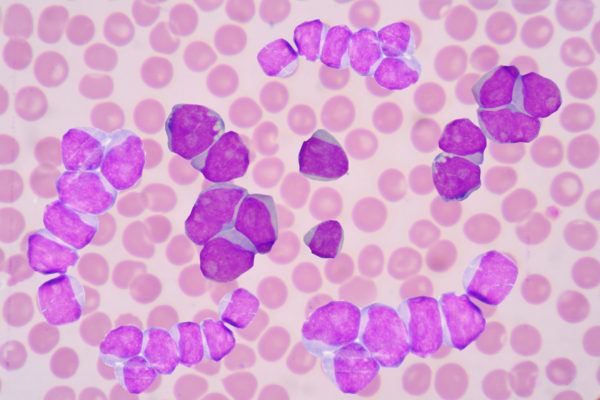
During the 2023 European Haematology Association (EHA) congress, novel findings of the EURO-SKI trial shed light on the prognostic factors impacting molecular remission maintenance after tyrosine kinase inhibitor (TKI) treatment discontinuation, along with the impact of TKI cessation on quality of life across various age groups in patients with chronic myeloid leukaemia.
The profile of patients who can benefit most from discontinuing tyrosine kinase inhibitors (TKIs) and the specific domains of Health-Related Quality of Life (HRQoL) that show improvement after TKI cessation remain relatively unknown. HRQoL was investigated as a secondary outcome in the EURO-SKI trial, with a focus on understanding HRQoL trajectories by age group categories (18-39 years, 40-59 years, 60-69 years, and ≥70 years). The trial assessed the HRQoL of patients using the EORTC QLQ-C30 and fatigue with the FACIT-F scales, with evaluations conducted at baseline (treatment cessation) and at months 1, 3, 6, and 12 post-cessation.
The trial assessed the HRQoL of patients using the EORTC QLQ-C30 and fatigue with the FACIT-F scales, with evaluations conducted at baseline (treatment cessation) and at months 1, 3, 6, and 12 post-cessation. A total of 686 patients were evaluated in the study, and the analysis revealed distinct HRQoL trends across different age groups. In patients aged 18-59 years, there was a statistically significant decrease in fatigue over time up to month 12 after TKI cessation. However, this trend was not observed in patients aged 60-69 years or ≥70 years. Regarding pain, patients aged >40 years showed a statistically significant increase in pain severity, while patients aged 18-39 years reported no increase in pain severity. Other key symptoms, such as diarrhoea or nausea/vomiting, decreased over time regardless of the age category. Interestingly, patients aged 18-39 years reported a statistically significant improvement in cognitive functioning after stopping TKIs, whereas no such improvement was observed in the other age groups. In the subgroup of patients who did not experience a relapse during the first 6 months after TKI cessation, the proportion of patients with deteriorated, improved, or stable role functioning and fatigue also varied among age groups. Younger patients tended to report better outcomes than older patients, further suggesting the potential benefits of TKI cessation for the younger age group in various HRQoL domains.
In summary, TKI cessation appears to be associated with HRQoL benefits in specific domains. However, the magnitude of these benefits varies across different age groups. Younger patients may expect greater improvements across various HRQoL domains, including cognitive functioning in patients aged 18-39 years. A better understanding of which functional limitations and symptoms persist after TKI cessation is important to provide targeted supportive care interventions. This knowledge is essential for informed decision-making by both patients and physicians, ultimately leading to improved treatment strategies.
Reference
Efficace F. Health-related quality of life of patients with chronic myeloid leukemia after discontinuation of tyrosine kinase inhibitors: results from the EURO-SKI study. Presented at EHA 2023; Presentation ID S159.